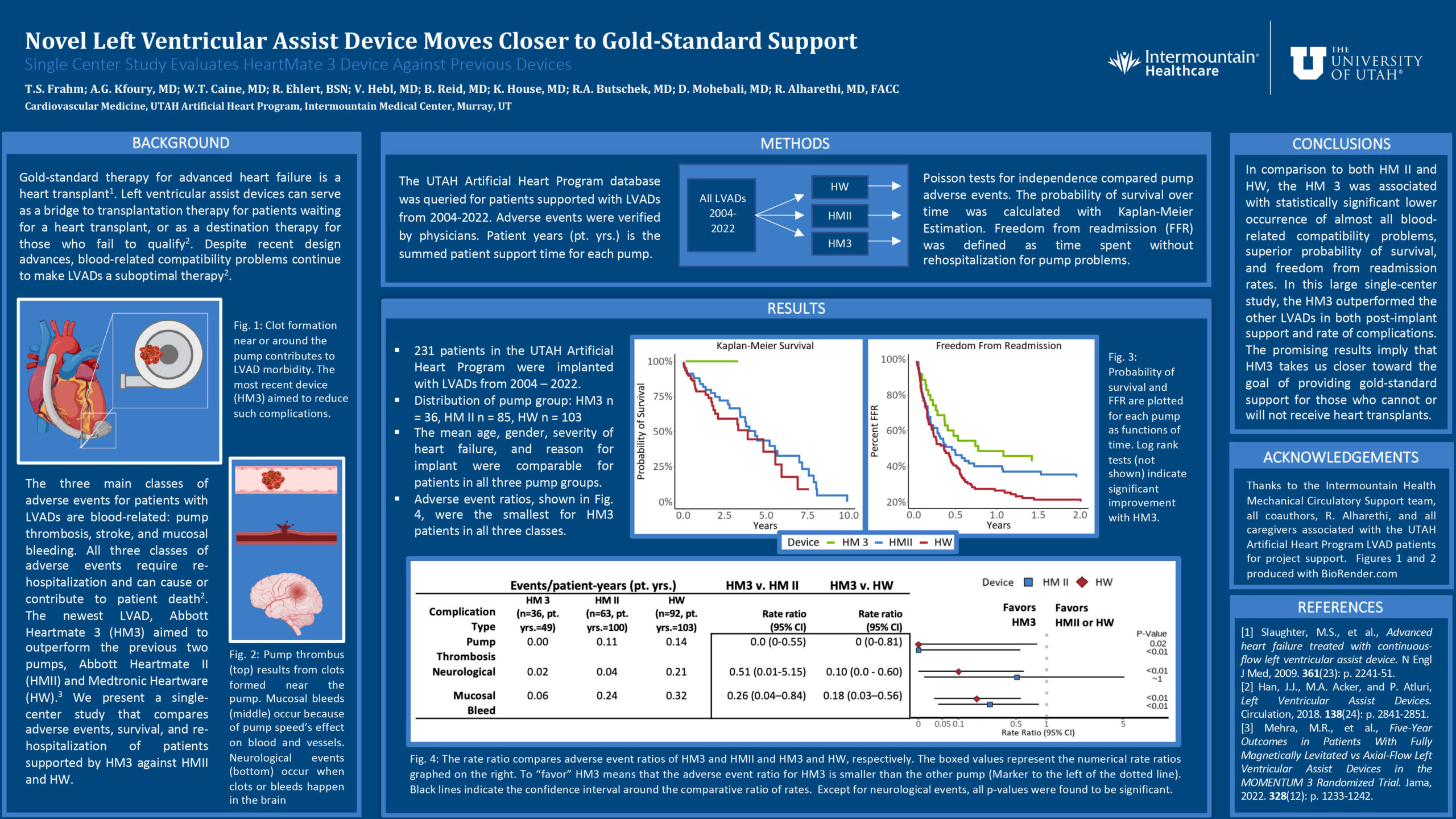Presenter Name: Tanner Frahm
Description
Purpose: Despite improvements in the continuous flow (CF) durable left ventricular assist device (LVAD), hemocompatibility complications are still the major contributor to morbidity and mortality post implant. The Abbott Heartmate 3 (HM3) is the only FDA approved LVAD as bridge to transplantation (BTT), bridge to decision (BTD) and destination therapy (DT). The purpose of this study is to compare the survival and rate of neurological and hemocompatibility complications including mucosal bleed and pump thrombosis in patients (pts) from our center supported with the HM3 to previous generations of LVADs: the Abbott HeartMate II (HM II) and the Medtronic HeartWare (HW).
Methods: The Utah Artificial Heart Program database was queried for pts supported with CF LVADs from 2004-2022. Patient hemocompatibility outcomes were retrospectively quantified. Rate ratios, confidence intervals, and significance testing were calculated with Poisson Tests for independence. Post-implant survival was calculated with Kaplan-Meier estimation. Survival was compared with log rank tests. 23 pts were excluded from adverse event analysis due to lack of follow-up. P-values <0.05 were considered significant.
Results: 231 pts were implanted with CF LVADs at our center, HM3 n = 36, HM II n = 85, HW n = 103 with average age 56±13.8 yrs, 22% female and INTERMACS profile 3 being similar across all devices. The intent of therapy was comparable across the three devices. In comparison to both HM II and HW, the HM 3 was associated with statistically significant lower occurrence of almost all hemocompatibility complications and superior survival rates (Table)
Conclusion: In this large single-center study, the fully magnetically levitated CF LVAD (HM3) outperformed the other generations of CF LVAD (HM II and HW) in both post-implant survival and rate of hemocompatibility complications. These results imply that the HM3 takes us a step closer towards the goal "there".
University / Institution: University of Utah
Type: Poster
Format: In Person
Presentation #D10
SESSION D (3:30-5:00PM)
Area of Research: Health & Medicine
Email: u1117978@umail.utah.edu
Faculty Mentor: Rami Alharethi

